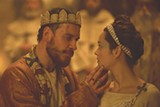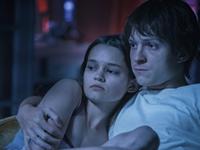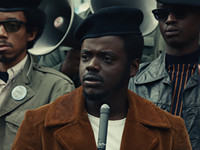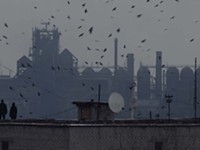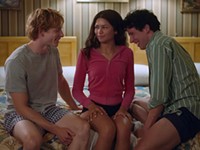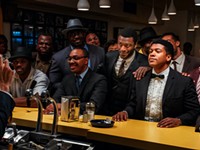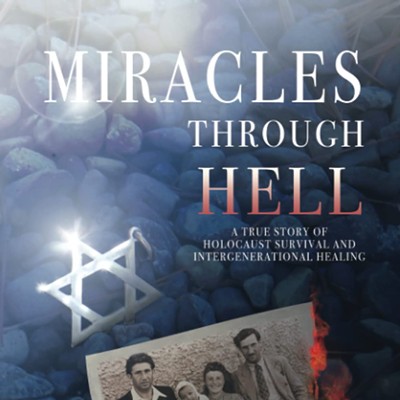[
{
"name": "500x250 Ad",
"insertPoint": "5",
"component": "15667920",
"parentWrapperClass": "",
"requiredCountToDisplay": "1"
}
]
Adapting one of Shakespeare's greatest tragedies is a daunting proposition when you consider that some of film's most celebrated directors -- from Akira Kurosawa to Orson Welles and Roman Polanski -- have delivered their own masterful spins on the twisted tale of the ambitious general Macbeth. Undeterred, Australian filmmaker Justin Kurzel, making only his second feature after "The Snowtown Murders," delivers an oppressively bleak take on the familiar tale. Though purists may revolt at the liberties taken with the text (the film occasionally feels like a CliffsNotes adaptation of the play), the results are frequently captivating.
Many directors feel the need to recontextualize or modernize Shakespeare, but Kurzel avoids that temptation, and sets the action in a straightforward depiction of ye olde Scotland. Macbeth (played by Michael Fassbender) is a powerful general and war hero after defending the kingdom from rebellion. Still fresh off his success on the battlefield, he receives a tantalizing prophecy from three witches who tell him that he's destined to become king. Macbeth is given a push to expedite the process by his Lady (Marion Cotillard), who convinces him to slay the benevolent reigning King Duncan (David Thewlis), putting into motion a bloody cycle of violence and betrayal as Macbeth sets about murdering every man, woman, and child who may stand in his way.
The play's text has been stripped down to the essentials, streamlining the action but keeping those famous soliloquies: "Out damned spot" and "All the world's a stage" all appear, though you won't hear the witches "double, double" incantation (a side effect of those characters given slightly less prominence in this version). The script is credited to a trio of screenwriters (Todd Louiso, Jacob Koskoff, and Michael Lesslie), and they maintain Shakespeare's original language, so anyone who had trouble in 10th grade English class might want to at least give the Wikipedia page a quick scan before heading out to the theater.
This version adds in some extra motivation for the scheming pair, as we learn that Macbeth and his wife have lost a child, whose funeral opens the movie. Macbeth's legacy has been cruelly taken from him, and the lack of an heir has left them both desperate for a way to secure their future. The theme of parenthood is furthered in the film's depiction of the "weird sisters," here shown carrying a young child and a baby with them. The focus on the characters' offspring adds an extra dimension to the text, emphasizing the ways that quests for vengeance has a way of being passed onto the children, and the cycles of violence continue on with each new generation.
Cotillard's Lady Macbeth is less fearsomely manipulative than often depicted, and more quickly troubled by the monster she's created in spurring her husband to action. It's typical of Cotillard's understated portrayal that her biggest moment is delivered in a whisper. Fassbender's Macbeth seems even less in command, seeming bewildered as he's swept up in circumstances that are beyond his control. He and Cotillard expertly capture the pair's descent into paranoia and madness, but never give in to the temptation to go over-the-top with it. As they grow increasingly plagued by a guilt, it's clear that while they may have a head for betrayal, they don't have the stomach. The supporting cast is top-notch, particularly Paddy Considine as Macbeth's doomed best friend, Banquo, and Sean Harris as MacDuff.
The film is bookended by battles (the first is only referred to in the original play), and Kurzel opts for a "Game of Thrones"-esque physicality and verisimilitude, with blood and mud flying at the camera in a brutal tableau of medieval warfare. It's a modern take on combat that thankfully avoids hordes of computer-generated men running toward one another. The rather amelodic, string-heavy score by the director's brother, Jed Kurzel, adds an unsettling sense of foreboding. The gorgeous, oversaturated cinematography from Adam Arkapaw (who worked on the first season of HBO's "True Detective") is the film's true star: the final combat sequence is jaw-dropping, as Arkapaw swathes the entire battle in shades of red and orange. The use of real Scotland locations is especially effective.
As adaptation, this new "Macbeth" lands somewhere in the middle of Orson Welles' stark expressionism, Polanski's ostentatious brutality, and Kurosawa's minimalism. Kurzel's "Macbeth" is somber, moody, and quieter than expected (I wasn't alone in expecting more bombast, judging by the soft snoring drifting up from the row behind me at my showing). We've seen this story before, but the remarkable performances and bravura more than justify its existence.
